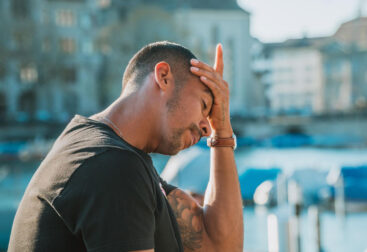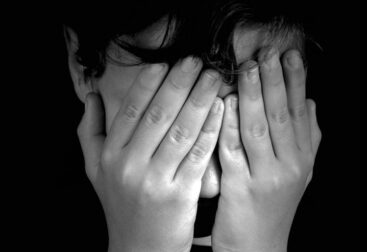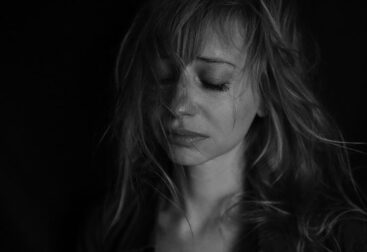I was in the bedroom, sobbing into a pillow to muffle the sounds.
I told myself over and over again, “Be brave. Come on! You gotta be brave.”
But I didn’t feel brave. I felt terrified. My relationship was falling apart, and I didn’t know what to do.
Now I look back on that moment and understand its significance.
Had I listened to that small, scared voice inside, I might have got out of that relationship sooner and saved myself so much stress.
But instead of listening to my gut, which giving me unmistakable danger signals, I listened to my head, which told me not to be so stupid.
Where did I get this idea that I had to be brave?
Why were those the words I used to reassure myself when I was terrified and alone?
If you’ve ever been in a situation like that, where your life was falling apart around you and you had no idea what to do, you may have spoken similar words to yourself.
“Buck up. Don’t be such a wuss. You can do this. Hang in there. It’ll get better.”
Your intention was to reassure yourself, but the effect was to drive your legitimate feelings of fear underground.
You weren’t making yourself feel better. You were shaming yourself for feeling scared.
Feelings are messengers, not a sign of weakness.
They’re our body’s signal that something is happening that needs attention.
But many of us grew in families where we were punished for feeling.
The more sensitive you were, the more intensely you felt, the more you were shamed.
You were made to believe that it was wrong to be too happy or too excited or too disappointed. You needed to grow up and get your feelings under control. You needed to “be brave” and stop hassling the adults with your tears.
Bravery meant not crying over a bonked knee or a cruel word. Bravery meant shoving those feelings of discomfort away and making yourself do something even if everything inside you was screaming, “No!!!”
And that set you up for a life in which you ignored your intuition.
You did things you didn’t want to do. You told yourself that everyone does stuff they don’t want to do.
When something inside you balked, you felt ashamed. Those feelings of resistance were proof that you weren’t yet the adult you were supposed to be.
And if someone told you that it was okay to feel scared, it was okay to break down, it was okay to sob, you stepped far away from them. Absolutely not. It’s not okay to feel that way!
Because if you let yourself feel your feelings…
Who knows what might happen?
You might collapse. You might not be able to get out of bed. Your life will end up destroyed: you won’t be able to perform at work or show up for your family or act normal around your friends.
And so you soldier on instead. You buck up. You tell yourself to be brave.
But here’s the question I wished I’d have asked myself back then:
What if things don’t get better?
What if you’re brave and soldier on … and nothing changes?
Can you keep going on like this forever? What toll is that going to take on you?
When soldiers on the front line of war told themselves to be brave, they marched straight ahead into the jaws of death. They pushed down their legitimate fear, and their lives ended.
We can admire that. We can honor their sacrifice. But we can’t bring those lives back.
So stop being so brave.
Instead, turn to your fear and ask it:
“Tell me more – I want to know why you feel this way.”





